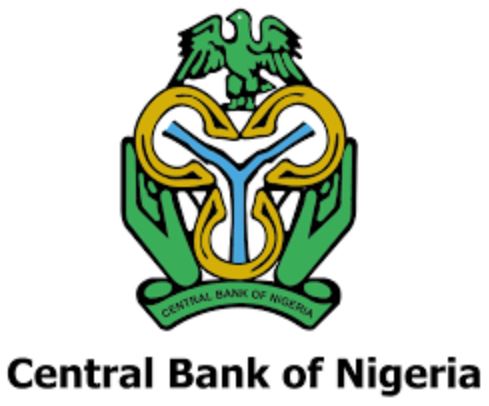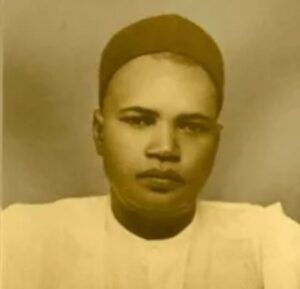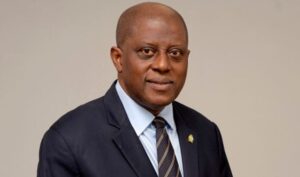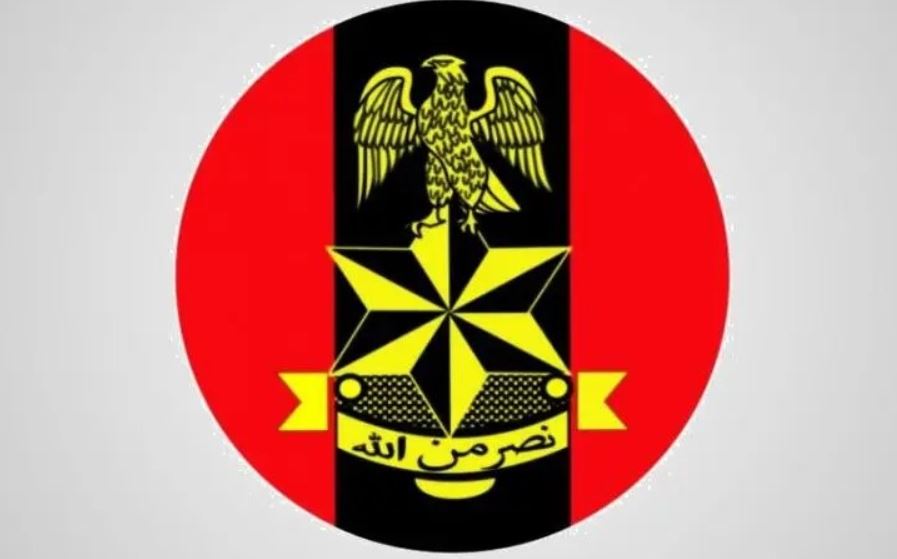
List Of CBN Governors From 1960 Till Date
This is a comprehensive list of all the CBN governors from 1960 till date. The Central Bank of Nigeria (CBN) is a top bank in Nigeria, responsible for regulating monetary policy, issuing currency, and overseeing the banking system.
Established in 1958, the CBN is Instrumental in maintaining financial stability and promoting economic growth in the country.
Its primary functions include managing the nation’s foreign exchange reserves, supervising commercial banks, and implementing measures to control inflation and interest rates.
READ ALSO: The Full Meaning of NAFDAC And Their Functions
List Of CBN Governors From 1960 Till Date
| No | Name | Term In Office | Notes |
|---|---|---|---|
| 1 | Roy Pentelow Fenton | 24 July 1958 – 24 July 1963 | First Governor of the era. |
| 2 | Aliyu Mai-Bornu | 25 July 1963 – 22 June 1967 | Oversaw significant changes. |
| 3 | Clement Nyong Isong | 15 August 1967 – 22 September 1975 | Longest-serving in this period. |
| 4 | Adamu Ciroma | 24 September 1975 – 28 June 1977 | Focused on economic policies. |
| 5 | Ola Vincent | 28 June 1977 – 28 June 1982 | Promoted banking reforms. |
| 6 | Abdulkadir Ahmed | 28 June 1982 – 30 September 1993 | Led during economic challenges. |
| 7 | Paul Agbai Ogwuma | 1 October 1993 – 29 May 1999 | Transitioned to a new era. |
| 8 | Joseph Oladele Sanusi | 29 May 1999 – 29 May 2004 | Focused on modernization. |
| 9 | Charles Chukwuma Soludo | 29 May 2004 – 29 May 2009 | Known for financial reforms. |
| 10 | Sanusi Lamido Aminu Sanusi | 3 June 2009 – 20 February 2014 | Prominent in the banking sector. |
| 11 | Sarah Alade (Acting) | 20 February 2014 – 3 June 2014 | First female acting governor. |
| 12 | Godwin Emefiele | 3 June 2014 – 9 June 2023 | Long tenure with major reforms. |
| 13 | Folashodun Adebisi Shonubi (Acting) | 9 June 2023 – 15 September 2023 | Short-term acting governor. |
| 14 | Olayemi Cardoso | 15 September 2023 – Incumbent | Current governor. |
READ ALSO: Who Established NDLEA in Nigeria
Who Was The First Indigenous Governor Of The Central Bank Of Nigeria?

The first indigenous governor of the Central Bank of Nigeria was Aliyu Mai-Bornu. Born in 1919 in Yola, Northern Nigeria, he came from a Kanuri family.
His father was a councilor, and initially, he didn’t want Mai-Bornu to go to school, but the Lamido of Yola convinced him to let his son get an education.
Mai-Bornu started his schooling at Yola Elementary School and later went to Kaduna College, where he trained to become an English teacher.
After teaching for several years, he received a government scholarship to study economics at the University of Bristol in the United Kingdom.
He graduated in 1957 and returned to Nigeria to work in the Northern Nigeria Public Service, where he gained experience in the Ministry of Finance and Trade.
In 1959, when the Central Bank of Nigeria was established, Mai-Bornu joined the bank as an assistant secretary. He quickly rose through the ranks, becoming the deputy governor in 1962, making him the first Nigerian to hold that position.
A year later, on July 25, 1963, he was appointed the governor of the Central Bank of Nigeria. He held this position until June 22, 1967.
After his time at the Central Bank, Mai-Bornu continued to contribute to the Nigerian economy by working with the Nigerian Tobacco Company, where he served as the director and general manager until 1969. He remained on the board of directors until he passed away on February 23, 1970.
READ ALSO: Full Meaning Of NDLEA And Their Functions
Who Is The Current Governor Of The Central Bank Of Nigeria?

Yemi Cardoso is the new Governor of the Central Bank of Nigeria (CBN). He was appointed by President Bola Tinubu on September 15, 2023, and later confirmed by the Nigerian Senate on September 23, 2023.
Yemi Cardoso took over from Folashodun Shonubi, who served as acting governor before him. Cardoso has a background in both the public and private sectors.
Born on July 10, 1957, in Lagos, Nigeria, Cardoso has a career in finance and banking. He studied at Aston University in the United Kingdom and earned a degree in Managerial and Administrative Studies in 1980.
Later, he furthered his education by obtaining a Master’s degree in Public Administration from Harvard Kennedy School in 2005. Cardoso had worked in different sectors.
He worked at Citibank Nigeria and became the Chair of the Board. He also contributed to the Lagos State Government, where he was the Commissioner for Economic Planning and Budget.
During his time in government, he played a key part in urban transport and financial projects that helped Lagos. Cardoso has also been involved in different financial organizations and think tanks.
He was a board member of MRS Oil and served on the advisory board of Lagos Business School. And now that he’s Governor of the CBN, Cardoso oversees the country’s monetary policy and helps manage the financial stability of Nigeria.
His deputy governors include Muhammad Sani Abdullahi, Emem Nnan Usoro, Philip Ikeazor, and Bala Bello, who assist him in running the bank’s operations.


Photoshop Crack Github
Adobe Photoshop Crack
Photoshop Crack Download
Photoshop Github
Photoshop Free Trial
Adobe Photoshop Free Download for Windows 10
Adobe Photoshop Free Download for PC
Adobe Photoshop Download for PC
Discord Music Bot GitHub
Discord Music Bot Spotify
Spotify Discord Bot
Spotify Bot Discord
Spotify Music Bot Discord
Binance Copy Trading
Trading Bot Binance GitHub
Best Trading Bot for Binance
Bot Trading Binance GitHub
Binance Bot Trading GitHub
Binance Auto Trading GitHub
Binance Trading Bot Free
Auto Trading Binance GitHub
Binance Auto Trading Bot GitHub
Binance Trader Bot GitHub
Binance Trading Bot GitHub
Arbitrage Trading Bot GitHub
Arbitrage Trading Bot
Arbitrage Bot GitHub
Crypto Arbitrage Bot GitHub
Crypto Arbitration Bot
Pionex Arbitrage Bot
DEX Arbitrage Bot
AI Arbitrage Trading
Bitsgap Arbitrage Bot
Crypto Arbitrage Bot Free
Forex Trading Bot GitHub
Forex Trading Bot
Forex Robot
Forex Trading Robot
Forex Bot
AI Forex Trading Bot
MT5 Automated Trading Robot Free Download
Free Forex Robot
Free Forex Trading Robot
Forex AI Trading Bot
Automated Forex Trading Robot
Forex Trading Bot Free
MT4 Automated Trading Robot Free Download
Solana Trading Bot GitHub
Trojan Trading Bot
Solana Trojan Trading Bot
Trojan Trading Bot GitHub
Solana Trojan Trading Bot GitHub
AI Solana Trading Bot GitHub
Solana Copy Trading Bot
Solana Trading Bot Auto Sell GitHub
Solana Auto Trading Bot GitHub
Building a Solana Trading Bot
Solana Crypto Trading Bot GitHub
Pump Fun Sniper Bot Github
Pump Fun Sniper
Pump Fun Sniper Bot
Solana Pump Fun Sniper Bot
Nova Pump Fun Sniper
Pump Fun Auto Sniper
Sniper Bot for Pump Fun
Pump Fun Sniper Solana
Solana Pump Fun Sniper
Pump Fun Token Sniper
Rug Checker
Rug Pull Checker
Crypto Rug Checker
Crypto Rug Pull
Crypto Rug
Rug Pull Detector
Rug Pull Bot
Coin Rug Pull
Rug Pull Crypto Checker
Credit Card Checker Github
Credit Card Eligibility Checker GitHub
Visa Card Balance Check GitHub
CC Checker GitHub
Check Visa Gift Card Balance GitHub
Camera Hack Tool Github
Cam Hacker GitHub
Cam Hack Tool GitHub
Hack Camera GitHub
GitHub Cam Hacker
PumpFun Bot GitHub
Solana Pump Fun Bot
Pump Fun Trading Bot Solana
Create Pump Fun Bot
Pump Fun AI Bot
Pump Fun Auto Trading Bot
Pump Fun Advanced Bot
Pump Fun Auto Comment Bot
Pump Fun Comment Bot
How to Create a Pump Fun Bot
Pumpfun Bump Bot
Pump Fun Bump Bot
Pump Fun Bundle Bot
Pump Fun Bundler Bot
Pump Fun Buy Bot GitHub
Pump Fun Boost Bot
Pump Fun Bot Solana
Microsoft Office 2019
Serato DJ Pro
Adobe Illustrator Free
Wondershare Filmora 14
Photoshop
Internet Download Manager
Photoshop Crack
Photoshop 2025 Crack
Photoshop 2025
Photoshop Cracked
Photoshop 2025 Cracked